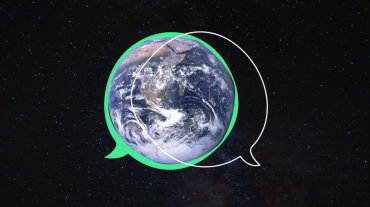How to drive eco-consciously for the climate
Traditional cars aren’t exactly eco-friendly. But with some conscious choices, you can squash your car-related footprint to a minimum.
Cars may have made the world smaller, but they’ve made it a lot dirtier too. Around the globe, busy roads host a symphony of tailpipes, all chugging greenhouse gases into the air. This aggravates city pollution — an issue that has blighted public health for the best part of a century. And globally, car pollution represents a thick source of emissions, as well as a deciding factor in our footprints.
We’ll never tell you not to drive. But if you’re concerned about the environment, here are some tips to help minimize the carbon impact of your car.

Five ways you can help
🚇
Try, ahem, not driving. We get that in much of North America and rural Europe, you would be crazy not to drive. Still, it’s worth checking online maps before you jump in the car. Depending on where you’re going, your route may be possible, or even—*gasp*— quicker with a bus or train. But here’s our golden advice: USE A BIKE. While not without its downsides, cycling is the cleanest, funnest, healthiest and often fastest way to kill short journeys.
⚡
Go electric. Want to take a swing at your carbon footprint? For 95% of the world, electric cars beat traditional cars on climate impact — due to greener fuel and zero tailpipe emissions. Thanks to massive investment, electric infrastructure is also thickening worldwide, calming popular fears of running out of battery, or not being able to charge. Electric cars don’t just benefit the environment. While their upfront costs are higher, they’ll save you money in the long term: through less maintenance costs, and cheaper refueling.
💑
Socialize. Carpooling is when two or more people, who would ordinarily drive their own cars, share one. The driver gets some company (and often gas money), the passengers get a ride, and the planet gets less traffic. It can also involve people you don’t know — online platforms exist that connect drivers with passengers. Drivers simply announce where they’re heading, how much space they have, and how much gas money they want. Work for a climate-conscious company? Suggest a carpooling scheme to match employees based on address. It’s not only cleaner, but faster too: dedicated carpool lanes can slash your journey time.
⛽
Fuel economy. If you must drive, there are ways to drive ‘cleaner’ that also save on gas. As a general rule, go easy on the car’s inputs. The slower you drive, the less fuel you burn (fun fact: this is why planes fly slower now than they did 20 years ago). Hold steady speeds, tread lightly on the pedals, and opt for windows over AC. You want to make your car’s life as easy as possible. So remove unnecessary items from your cabin and trunk, which will only weigh you down. Finally, keeping your tires pumped will help your car roll easier, meaning less engine power needed to reach and maintain speed.
🤝
Sharing is caring (for the environment). Carsharing is what they call a ‘disruptive’ idea. This means it’s so new, and useful, that it might upturn the industry. With carsharing, you rent a car for a short period, often by the half hour or kilometer. Why is this greener? Well, instead of buying a car for its biggest use case (an SUV for the annual trip to the country), carsharing lets you rent the right vehicle for the job. So you can book a small, fuel-efficient car for city driving, and the SUV for only when you need it. This directly challenges the idea of whether car ownership is even necessary.
The big picture
While driving and the environment aren’t natural friends, there are ways to incorporate driving into a low-carbon lifestyle. We live in a time of options; be it electric cars with no tailpipe emissions, or gentle driving that cuts your carbon output and gas bill. Many of these tips complement each other: carsharing, for example, forces you to consider whether you really need a car over public transport. Hopefully, armed with this knowledge, you can help make the roads and planet a slightly cleaner place.



